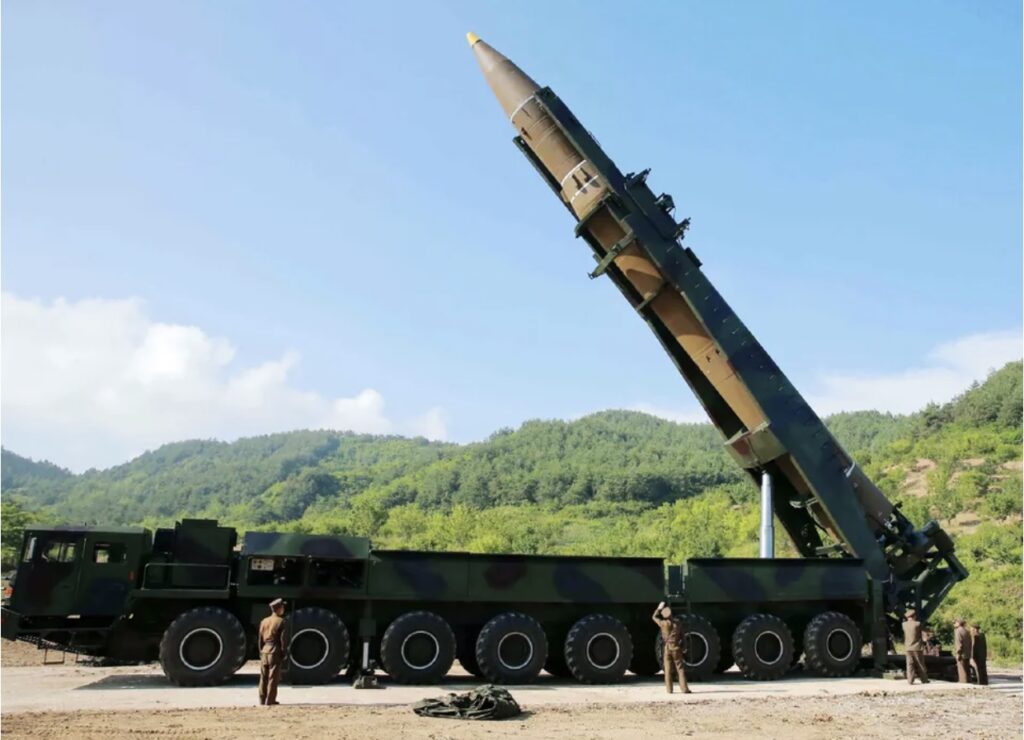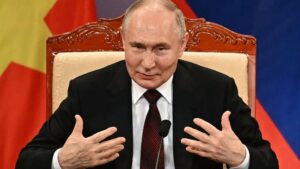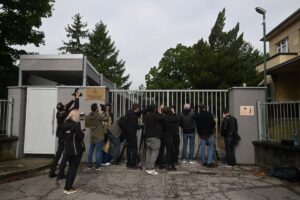South Korea warns North Korea that any nuclear attack would mean ‘end’ of Kim Jong Un’s regime, following Pyongyang’s threat of nuclear retaliation over increased US military activities on the peninsula.
Relations between the two Koreas are currently at a low point, with North Korea intensifying weapons testing while Seoul and Washington enhance military cooperation.
On Thursday, North Korea’s defense minister cautioned that the recent port visit of a US nuclear-capable submarine to Busan – the first since 1981 – could meet the legal conditions for the North to use its nuclear weapons.
Seoul’s defense ministry stated on Friday that it had previously made it clear that “any nuclear attack on the alliance will face an immediate, overwhelming, and decisive response.” It further added that if such an attack occurs, the North Korean regime would face its downfall.
The US submarine’s port visit is seen as a “legitimate defensive response” to the ongoing nuclear threats from Pyongyang, and this warning was issued by South Korean President Yoon Suk Yeol and US President Joe Biden during Yoon’s visit to Washington in April.
South Korea’s statement coincides with reports that an American soldier, Travis King, crossed into North Korean custody during a tourist trip to the Joint Security Area in the Demilitarized Zone on Tuesday.
North Korea’s nuclear policy
Kim Jong Un declared North Korea’s nuclear status “irreversible,” eliminating denuclearization talks, announced last year. The new nuclear law, though ambiguous, claims that Pyongyang could use its nuclear weapons in response to perceived imminent attacks.
Analysts suggest that North Korea could use this ambiguity to justify its nuclear use even in response to conventional attacks.
Seoul’s defense ministry emphasized that North Korea is the only entity that has adopted the Nuclear Forces Policy Act, which includes illegal preemptive strikes. Pyongyang continues to conduct actual preemptive strike drills and issue nuclear strike threats against the Seoul-Washington alliance.
In response to the situation, Washington and Seoul held their first Nuclear Consultative Group meeting in Seoul on Tuesday.



